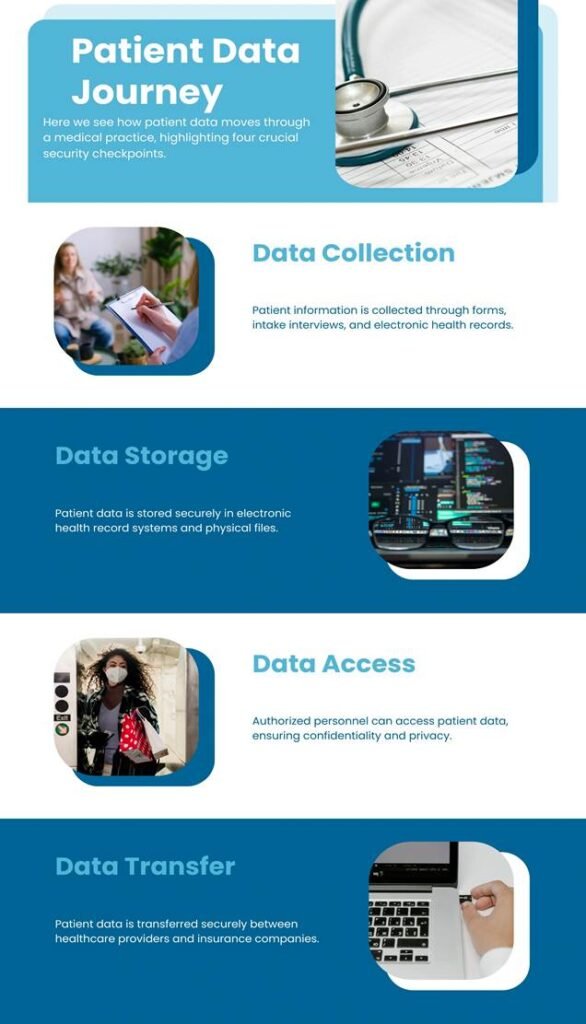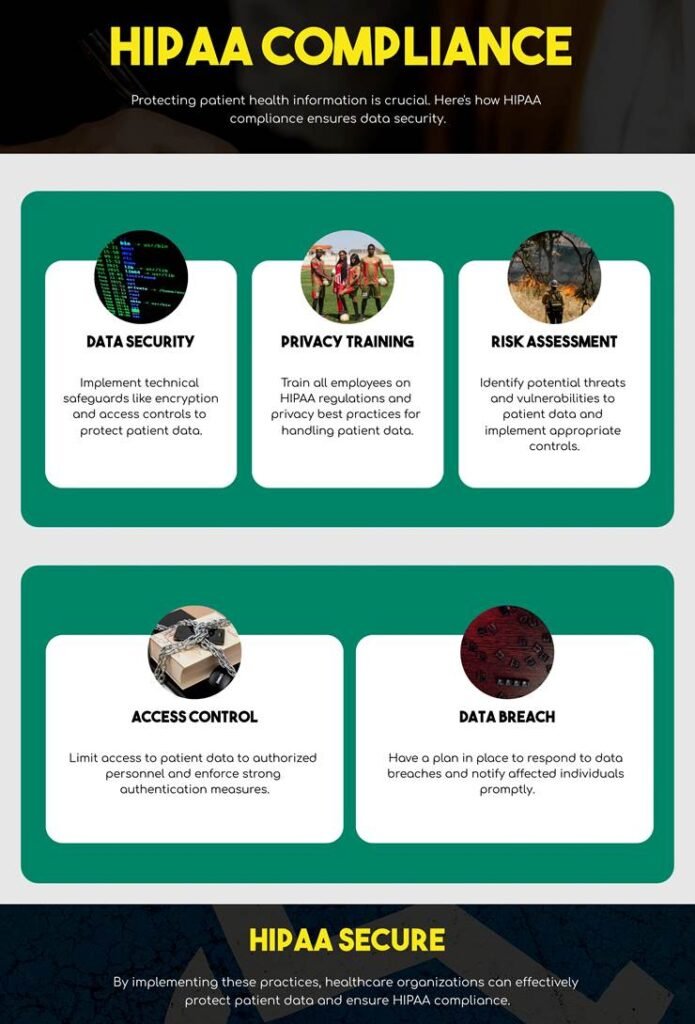In today’s digital healthcare environment, protecting patient data isn’t just about compliance – it’s about maintaining trust and providing quality care. As medical practices increasingly move towards digital solutions, understanding and implementing robust data protection measures becomes crucial for every healthcare administrator.
Understanding the Stakes in Patient Data Protection
Every day, medical practices handle countless pieces of sensitive patient information. From medical histories to insurance details, each piece of data requires careful handling and protection. Think of patient data as valuable jewels – they require multiple layers of security and constant vigilance.
Essential Security Measures for Medical Practices
The foundation of patient data protection starts with basic yet crucial security measures. While many practices understand the importance of security, implementing comprehensive protection requires attention to detail and consistent execution.
Digital Security Fundamentals
In the modern medical practice, digital security goes beyond just having passwords:
- Regular system updates and patch management
- Strong encryption protocols for all devices
- Multi-factor authentication systems
- Secure backup solutions
- Access control monitoring
Robust data protection systems and strict security protocols are cornerstones of our service at Emedsec, where we implement these measures as standard practice for all our virtual medical secretarial services.

Training and Staff Awareness
Your team plays a crucial role in maintaining data security. Creating a culture of security awareness means everyone understands their role in protecting patient information.
Daily Practice Habits
Consider implementing these essential practices:
- Regular security training sessions
- Clear protocols for handling patient data
- Incident reporting procedures
- Clean desk policies
- Regular security audits
Mobile Device Management
With the rise of mobile healthcare solutions, protecting data on portable devices becomes increasingly important. This includes:
- Securing tablets and smartphones
- Managing remote access protocols
- Implementing device tracking
- Enforcing encryption standards
- Controlling app installations
Document Management Systems
Proper document management is crucial for maintaining patient confidentiality while ensuring efficient access to necessary information. Modern practices need systematic approaches to:
- Digital file organization
- Access permission levels
- Audit trail maintenance
- Regular file reviews
- Secure document disposal

Communication Security
Secure communication channels are essential for protecting patient information while maintaining efficient practice operations. Consider:
- Encrypted email systems
- Secure messaging platforms
- Protected video conferencing
- Compliant file sharing methods
- Digital signature protocols
Emergency Response Planning
Having a plan for potential data breaches is as important as preventing them. Create comprehensive procedures for:
- Breach detection
- Incident response
- Patient notification
- Recovery processes
- Prevention improvements
Regular Audits and Updates
Maintaining security requires constant vigilance and regular system checks:
- Scheduled security assessments
- Compliance reviews
- System updates
- Policy revisions
- Staff retraining
The comprehensive data protection strategies described here are available for you at Emedsec, and you’re just one call away from experiencing this excellence in practice management and data security. Our virtual medical secretaries are trained in the latest data protection protocols, ensuring your practice maintains the highest standards of patient confidentiality while operating efficiently.
